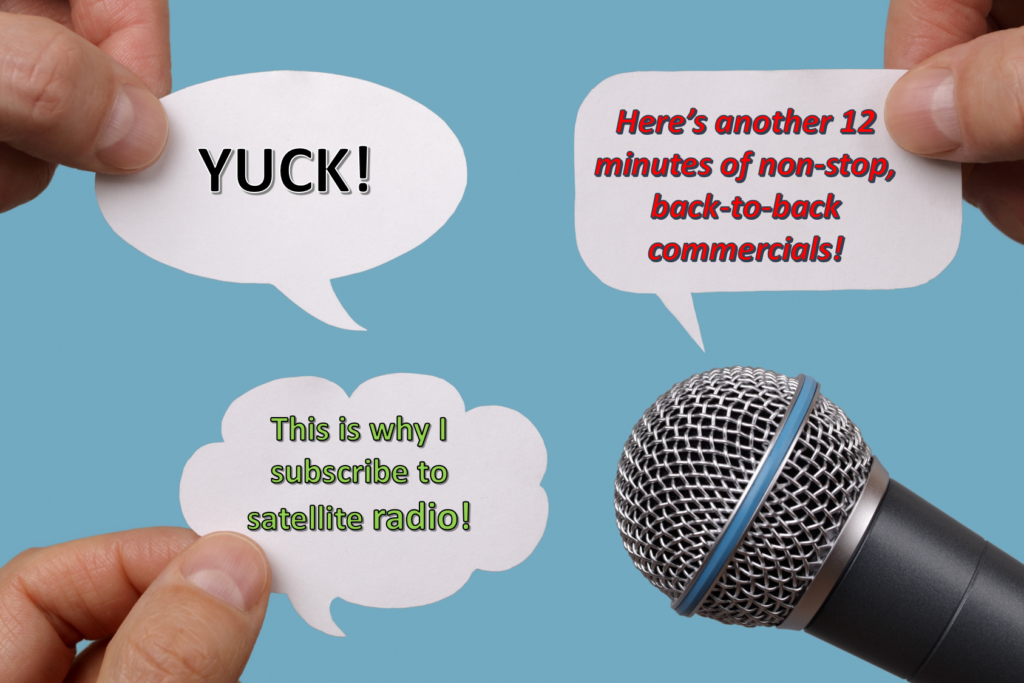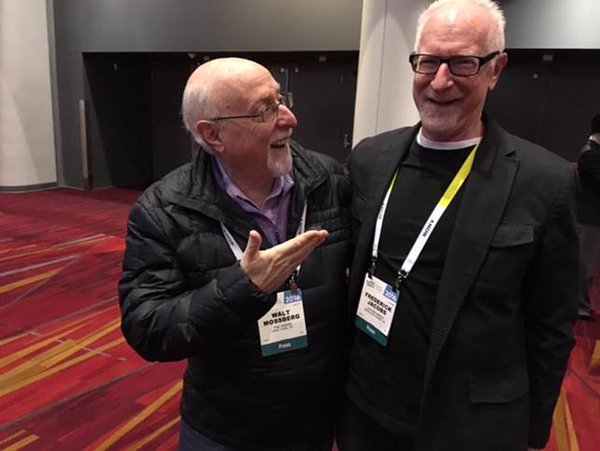
Welcome to another edition of #TBT here on the JacoBLOG. For today’s retro post, it’s an entry from eight years ago that (sadly) still has relevance today. In fact, it’s a sad commentary that radio’s quality of advertising – especially its local spots – might actually be getting worse.
And yet, no one seems to care. The medium of commercial radio depends on advertising for its sustainability. Yet, so many commercials are substandard at best.
At CES earlier this month, we were struck by how many tech companies are utilizing AI and other digital tools to craft better quality ads and an improved advertising experience. From LG to SK, new technology is being cleverly used to produce better user experiences.
Will AI elevate the quality of advertising on the broadcast radio airwaves? So many have a palpable fear of artificial intelligence they may not realize the robots may be capable of producing better ads that are faster, cheaper, and possibly more effective.
Radio pros like long-time Katz executive Bob McCurdy and former B101/Philadelphia owner Jerry Lee (both mentioned in today’s post) were the loudest and most credible of the voices arguing for better quality radio ads. Back in 2017 when this post was first published both were in position of prominence in the industry. Sadly, McCurdy passed away in 2020, while Lee’s iconic B101 was acquired by Audacy (nee Entercom) in 2018.
Who advocates for better commercial production on broadcast radio today? You can cut the silence with a razor blade. – FJ
January 2017
The era of the PPM ratings methodology has taught programmers about the value of minute-by-minute programming. Meters can migrate on a dime, reacting to everything from a rambling DJ to poor encoding to a weak-testing song.
Yet, why does everyone seemingly ignore the 25 minutes of commercials they run every hour?
A couple weeks ago, ad copywriter savant, Kevin Gunn, from Beasley’s WMMR, provided a template for writing better radio copy. And down the street in Philly, Jerry Lee has been on a one-man mission for years to cajole and beg radio to raise its creative commercial game. From better results to longer listening spans, there are compelling reasons for radio to invest in its stopset strategy.
And now there’s one more reason:
Web advertising is abysmal – and getting worse.
That reality came into focus last week when Walt Mossberg, tech guru from Recode, wrote a pointed story about the web advertising experience:
“Lousy ads are ruining the online experience.”
Mossberg recounted his bumpy online experience while trying to simply watch an NFL playoff game replay. It’s an experience that we all share every time we’re surfing around the web. It’s a lot of things: forced ads that automatically run, long pre-rolls, incessant buffering, trying to fool us into clicking the wrong link. Mossberg’s point is that web advertising has become a minefield.
How many of us have simply given up by x-ing out a web page because it was simply unnavigable? It seems like every time you click on “The 10 Least Expensive Cities In America” or “The 12 Colleges With The Best ROI,” the experience is so fraught with speed bumps and glitches that you just throw in the towel – or mouse.
Mossberg cites the recent move by Ev Williams, CEO of Medium, who recently canned his entire ad sales team. And while Williams may end up moving to a subscription model to eliminate the manic, cacophonous, and intrusive web experience, the fact is that when it comes to advertising, the Internet is broken.
That’s summed up by Scott Cunningham, SVP Technology and Ad Operations for the Interactive Advertising Bureau:
“We lost track of the user experience. Looking back now, our scraping of dimes may have cost us dollars in consumer loyalty.”
Doesn’t that statement ring true in the radio business, too? As big radio companies fell deeper into debt, programmatic and remnant ads have become the norm, driving the commercial experience down the drain, making stopsets virtually unlistenable. The quest for revenue – any revenue – has created the worst possible environment for radio’s two biggest constituencies – advertisers and listeners.

Walt Mossberg & me sharing a laugh at CES
There are so many different players intertwined together on the web that Mossberg all but suggests that aside from subscription models, the experience may not be fixable. And given that so many of radio’s traditional spenders have moved to digital spaces, that’s a story that sales departments should be sharing with clients. When the IAB raises doubts about the efficacy of online advertising, you’ve got a problem on your hands.
Radio, as an industry, may actually be in a position to take control of its own substandard advertising experience. Unlike the catacomb-like nature of the Internet, the radio advertising ecosystem is smaller, tighter, and more like a small community than a global morass of vendors, third party players, and scam artists all trying to game the system.
Initiatives from the RAB and pioneers like Jerry Lee and Bob McCurdy could actually improve the on-air advertising experience, at least a few times an hour. If that turned into more sales success stories and improved listening duration, isn’t that an initiative worth pursuing?
In recent years, radio has had its hands full competing with Internet ad models.
By improving its advertising experience, its old-school solution could become fashionable again.

Gary Krantz
P.S. Condolences to the family, friends, and many colleagues of radio sales pro Gary Krantz whose passing was announced late yesterday. Our company – especially Paul and me – had a number of encounters – better put, adventures – with Gary over many years.
He was a consummate “schlepper,” always pumped up about his latest project, many of which ran the gamut over the decades. Gary’s enthusiasm was strictly “old school,” but highly contagious. He could get fired up about pretty much any product, service, or concept and explain to you why you needed it…NOW!
At a time when great sellers are rare and many organizations struggle with motivating them, Gary’s irrepressible charm and belief in the value of the products, programming, and people he represented was enduring.
May his memory be a blessing. – Fj
Originally published by Jacobs Media








